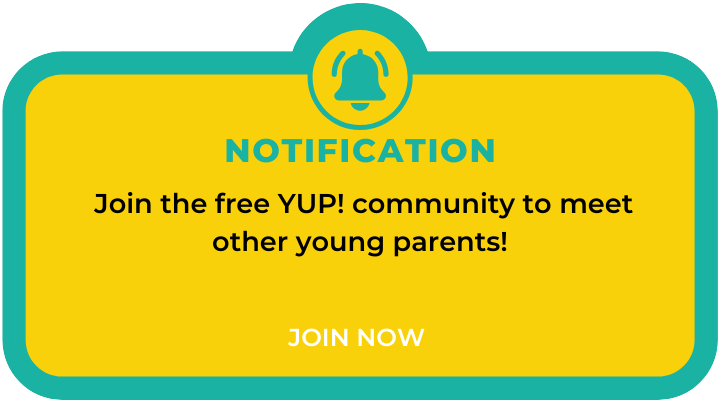Balancing College as a Young Parent

While college isn’t for everyone, having a degree can open up a lot of doors for your career and increase your earning potential. Whether you are considering college or already enrolled, there are resources available and steps you can take to make the journey more manageable.
Benefits of Finishing College
Earning a degree, or furthering your education in general, has many benefits. These can include:
- A higher income
- Lower chances of being unemployed
- More job satisfaction
In the long run, a higher income usually means more financial stability, which can allow you to better support your family, afford healthier foods, and have more time to participate in activities you enjoy. These benefits and working at a job you enjoy can also lead to less stress.
How to Balance College and Raising a Child
Finding a balance between taking care of your child, studying, and keeping up with other responsibilities can be challenging. Here are some suggestions:
- Manage your time. Prioritize important tasks and try to finish your homework while your child is sleeping. Prepare your child’s items (such as clothing and food) the night before to make mornings easier. Use digital calendars, to-do lists, or phone reminders to get organized. See our article on time management for more tips.
- Seek help from your support networks. Stay connected with friends and family and lean on your partner or co-parent. At college, develop relationships with other students from similar backgrounds so you can encourage one another. Don’t be afraid to ask for help from professors and teaching assistants – they want to see you succeed. You can always lean on the support of other young parents in the YUP! community. Create an account and meet other young parents like you.
- Eat well, exercise, and sleep. Practice self-care by not skipping meals and by drinking a lot of water. Take the stairs instead of the elevator, go for a walk with your child, or just take a moment to breathe. Sleep at least 7-8 hours, if possible, to function better. Self-care is key to doing your best.
- Consider family planning. Using an effective contraception method gives you control over when or if to have another child. There are a lot of birth control options you can choose from based on your needs. See our article on family planning to learn more.
Support Services and Resources
The following types of services and resources are often available at colleges:
Childcare Support: Some colleges have on-campus childcare or partnerships with local childcare centers, which can be more affordable. If you cannot find last-minute childcare, some professors might allow you to bring your child to class. If you need childcare financial assistance, check your state’s resources.
Financial Aid and Scholarships
Childcare Support: Some colleges have on-campus childcare or partnerships with local childcare centers, which can be more affordable. If you cannot find last-minute childcare, some professors might allow you to bring your child to class. If you need childcare financial assistance, check your state’s resources.
Financial Aid and Scholarships
- Submit a Free Application for Federal Student Aid (FAFSA) as early as possible. This application is required for eligible students to receive grants (free money) and loans from the federal government to help pay for school. Applying for FAFSA is also often required when applying for scholarships.
- Apply for scholarships. Scholarships are available all year and for all types of students, including parents. You can start a preliminary search for scholarships through a website called Scholarships.com. You can also visit your college financial aid office or website.
- Apply to work study. This opportunity provides flexible part-time jobs to students with financial need. To learn more, contact your school’s financial aid office.
- Educational Opportunity Programs. These programs provide admission, academic, and financial support services to students from diverse and low-income backgrounds. An example is federal TRIO programs. Contact your advisor to find out if your school has these or similar programs.
Academic and Professional
- Tutoring and writing centers. Tutoring help for subjects such as math, science, and history are usually available through their departments. Writing centers, usually located in libraries, can help you perform research for projects and provide feedback on essays.
- Librarians. These individuals can help you learn how to quickly access information, use reliable sources, and properly use citations in essays and other written assignments.
- Career centers. These centers help students search for jobs, build and find new skills, plan for post-graduation, and boost their professional networks.
Last Resort Resources
- Student loans. Federal student loans are a good funding option that can help you focus on completing school. However, you have to pay them back, often with interest. Learn more about the way these loans work and whether they are right for you.
- Emergency funds. Some schools offer funds to students facing serious financial difficulties. Talk to your advisor to learn more about these funds, if your school offers them.
- Leave of Absence. Unfortunate events happen, and sometimes you need time away from school. Some schools allow students to take a quarter or semester off and return later. Talk to your advisor about this option (if you feel you need it) and whether taking leave might be right for you.
3 Things to Remember
1. You are capable of achieving your goals. 2. It’s okay to take longer than 4 years to finish a higher education degree. 3. You can change your mind if an education path does not feel right anymore.
